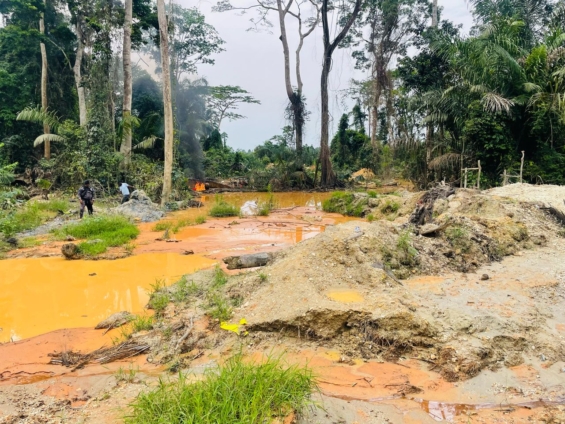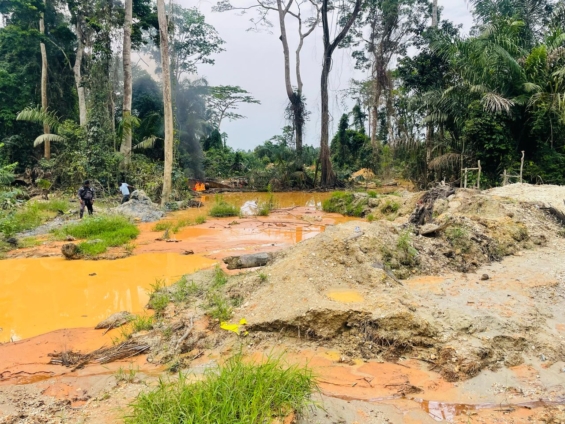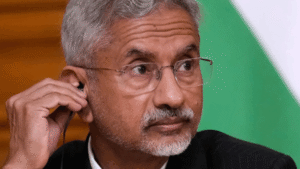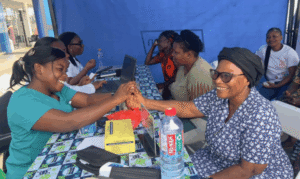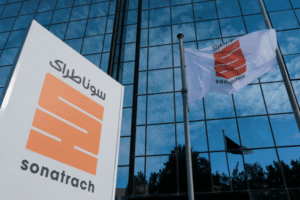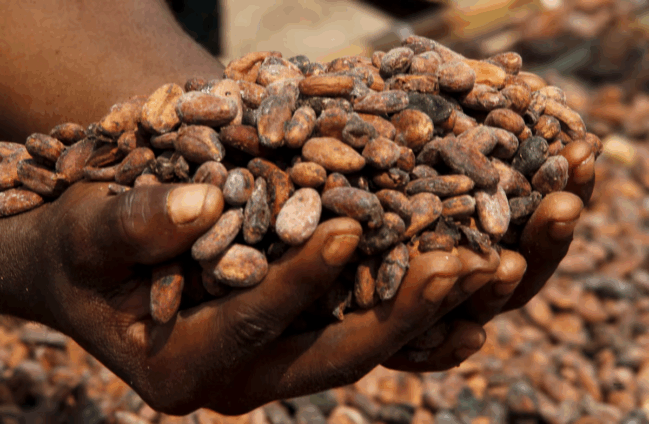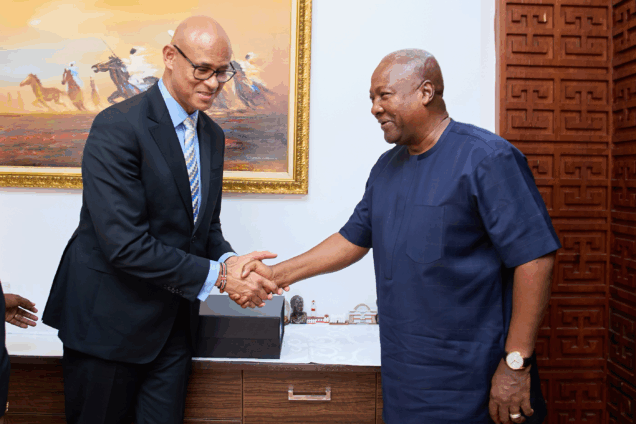Ghana is under siege by an environmental catastrophe that has grown beyond denial.
Everywhere we look, the evidence is irrefutable: mercury-blackened rivers, vast swaths of scarred earth where lush forests and fertile farms once stood, and poisoned water tables feeding sickness into communities.
Illegal small-scale mining – galamsey – has evolved from a local nuisance into a national emergency. As a lecturer and food-nutrition scientist, and on behalf of UTAG’s academic community, I say with absolute conviction that we must use every tool our Constitution provides to stop this destruction immediately.
A declaration of emergency in the hardest-hit mining hotspots is not an option to debate – it is an imperative we can no longer postpone.
Galamsey’s Toll on Ghana’s Land and Health
Communities across the country are sounding the alarm. Entire watersheds like the Pra, Birim, and Offin are contaminated by toxic waste, making clean water nearly impossible to find.
Farming villages report that once-productive cocoa and yam fields are now gouged by open pits, unreclaimable and barren.
For example, Ghanaian researchers have documented tens of thousands of hectares of forest and farmland lost to illegal mining in recent years, often within sensitive reserves.
Mercury and cyanide – poisons of gold extraction – now seep through soil and waterways, leading to fish kills, livestock deaths, and rising disease.
In affected areas, expectant mothers and children show signs of toxicity in blood tests. Families have been forced to abandon their ancestral lands or subsist on processed noodles because their farms yield nothing safe to eat.
These are not isolated anecdotes but a pattern of devastation backed by science: food production is down, malnutrition is creeping up, and common-sense remedies have already failed. The evidence is incontrovertible: galamsey is destroying Ghana’s environment and public health.
Constitutional Mandate: Article 31 Empowers Action
Our 1992 Constitution foresaw times like this. Under Article 31, when “the life of the nation is under threat” from any calamity, the President can declare a state of emergency.
What could threaten our national life more than the deliberate poisoning of our water and soil and the collapse of our food base? The Constitution doesn’t require this exact situation to be spelled out – it simply says that when normal governance cannot cope with a crisis, the people’s representatives can give the government extraordinary powers.
In practice, that means swift deployment of security and technical teams to flush out illegal miners and destroy illicit equipment, strict control of entry to forests and rivers, and immediate enforcement of bans on harmful chemicals like mercury.
These powers would be exercised under the watchful eye of Parliament and the courts, as the law demands. Far from being unconstitutional, this measure is a constitutional duty we have neglected.
In addition, the very spirit of our Constitution instructs the state in Article 36 to safeguard the environment “for posterity.” We can honor that directive right now by invoking Article 31 decisively in the affected zones.
Human Rights: No Excuse for Inaction
Some critics fear that a state of emergency might suspend human rights. I respect the intent behind those concerns, but let us be clear: it is not the emergency declaration that endangers rights – it is doing nothing.
The most fundamental rights are to life, health, and a safe environment. When we allow rivers to be rendered undrinkable and farmlands to yield toxicity, we trample those rights far more surely than any temporary law enforcement measure ever could.
Claiming “human rights” as a shield for inaction ignores this basic truth. In fact, raising procedural objections now reflects poorly on our institutions: it suggests a lack of confidence that our courts and oversight mechanisms can manage such an emergency.
Ghana’s judiciary has previously insisted that even under emergency powers, the rule of law must prevail. That precedent shows we can balance enforcement with rights. What we cannot afford is paralysis.
We should have no qualms in targeting only the criminals – the unlicensed dredgers and back-door mining rackets – while protecting innocent farmers and workers.
Any overstep can and will be checked by our laws and by civil society. But fearing a worst-case scenario of abuse should not let the real crisis grow unchallenged.
Indeed, the strongest way to protect Ghanaian rights in the long term is to stop this assault on the environment that underpins every Ghanaian’s well-being.
UTAG’s Stand: Facts, Not Partisanship
As members of the University Teachers Association of Ghana, our commitment is to evidence and the public good, not to any political party.
UTAG’s leadership and academic experts have repeatedly brought the facts to bear on this issue. In recent surveys, scientists in affected regions documented dramatic drops in crop yields and spikes in health complaints correlating with mining activity.
We see the data; we trust the science. Our call for emergency action is grounded in this research: it is not a political rallying cry but a scholarly prognosis. UTAG is not seeking applause or score-settling – we simply cannot stay silent when our expertise says the country is on the brink of an irreversible loss.
We stand ready to advise on the most effective, evidence-based interventions.
We urge the government and the public to join us in focusing on what works, not on petty blame games. This is about Ghana’s future, and academics will not allow it to become a battleground for partisanship.
Threat to Food Security and Future Generations
Above all, this crisis jeopardizes the fundamental right of Ghanaians to nourish themselves. Our nation’s food systems are under direct attack. Contaminated rivers mean poisoned fish and unsafe irrigation; razed forests mean dirt that erodes into our farms.
In one study of mining-affected villages, families described how their diets shifted almost overnight from fresh local food to processed packets – like instant noodles – because staples became scarce or suspect. As a nutrition scientist, I cannot overstate how alarming this is: we are literally trading nutrient-rich diets for empty calories out of necessity.
The long-term consequences are dire: higher rates of stunting in children, chronic illnesses, and a generation of Ghanaians born into poisoned surroundings. We already know that mercury can cross the placenta, stunting brain development even before birth.
If we do not intervene now, we will watch our grandchildren suffer from malnutrition and disease that could have been prevented. Ghana’s wealth was built on the richness of its land – from cocoa farms to vegetable plots – and to let it be ruined is to undercut everything we hope the next generation will inherit.
A United, Decisive Response Is Needed Now
Time is not on our side. Other forces – both local and international – are primed to take advantage of our inaction, and we cannot claim moral high ground as we watch our patrimony disappear. National security experts around the world recognize that environmental collapse breeds conflict and instability.
Let us not be the country that needed a warning shot from famine or international scandal before acting. Instead, let us seize control. I call on the President to move immediately under Article 31 to declare a targeted state of emergency in galamsey hotspots.
I call on Parliament to endorse this without delay and to ensure clear oversight and accountability. I call on the security services, environmental agencies, and courts to work together in a shared mission: identify the worst sites, remove all illegal operations, and restore our rivers and forests.
Crucially, this effort must include support for communities – providing alternative livelihoods and rebuilding land once the diggers are gone. Legitimate miners and forest users must be protected, even as criminals are crushed.
Ghana’s institutions are capable of this challenge. We need not shy away under the pretext of fear; indeed, having the courage to act in an emergency will prove their strength. Let all Ghanaian voices – labour unions, farmers, business leaders, and civil society – speak in unison: we demand decisive leadership, not more empty promises.
Failure is not an option; it would betray the sacrifices of those who fought for our democracy and the trust of every citizen. This is about our survival as a nation with clean water to drink, safe food to eat, and a heritage to preserve.
At this critical juncture, we must act swiftly, decisively, and together. Galamsey is an enemy of Ghana’s future – it must be confronted head-on before it is too late.
The writer is a lecturer at the Department of Food and Nutrition Education, Faculty of Health, Allied Sciences and Home Economics Education, University of Education, Winneba.
